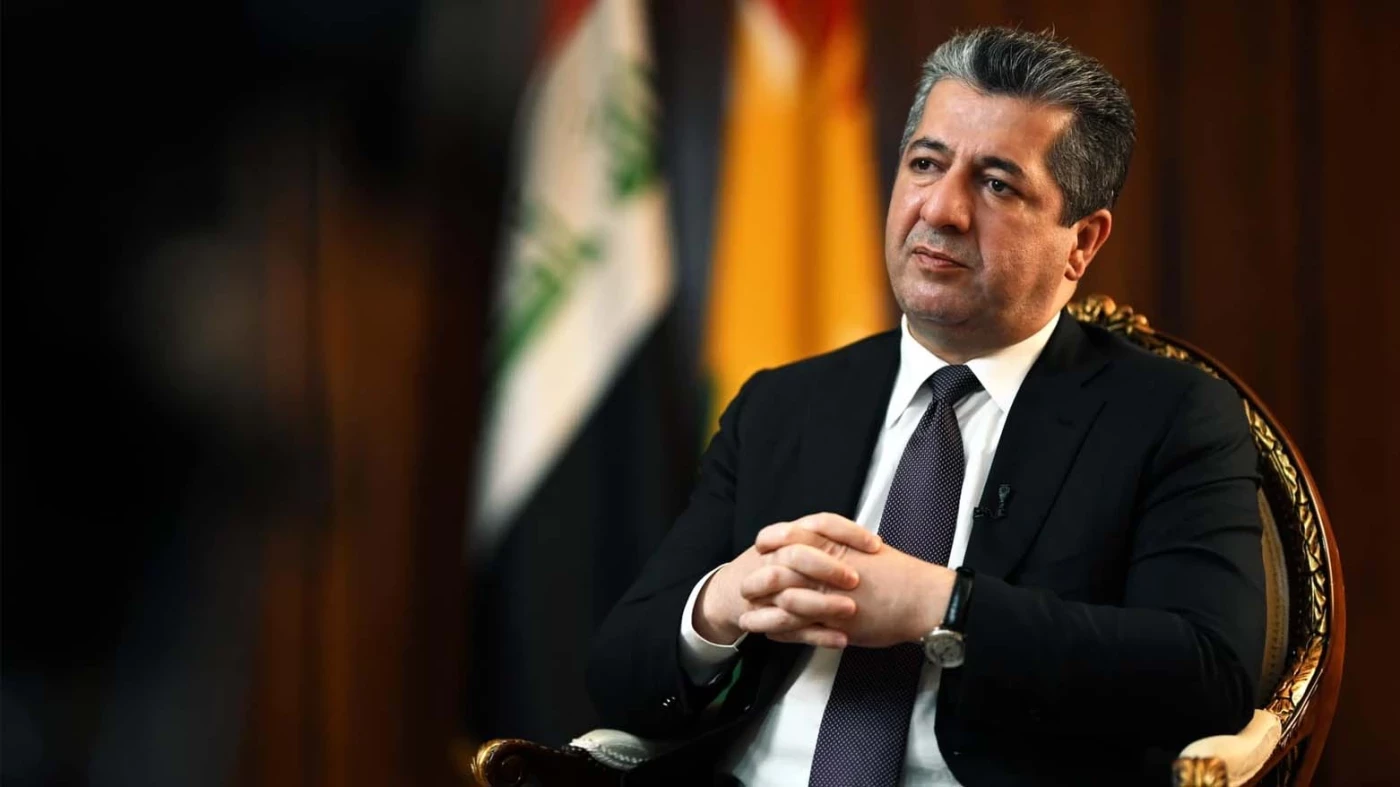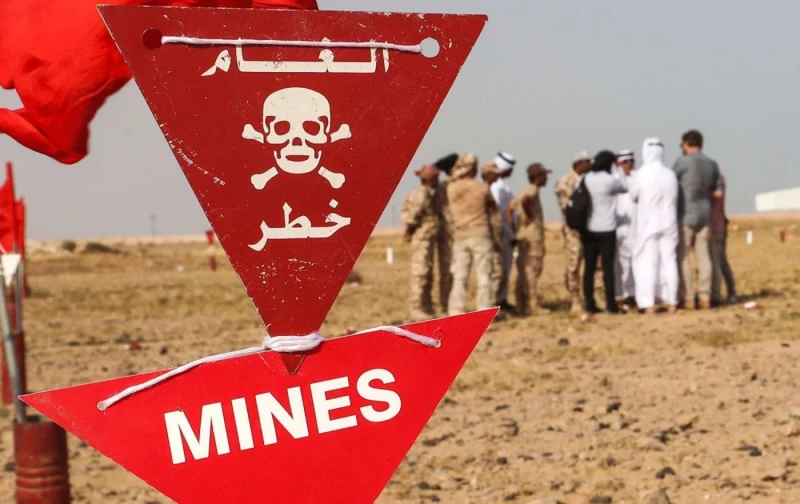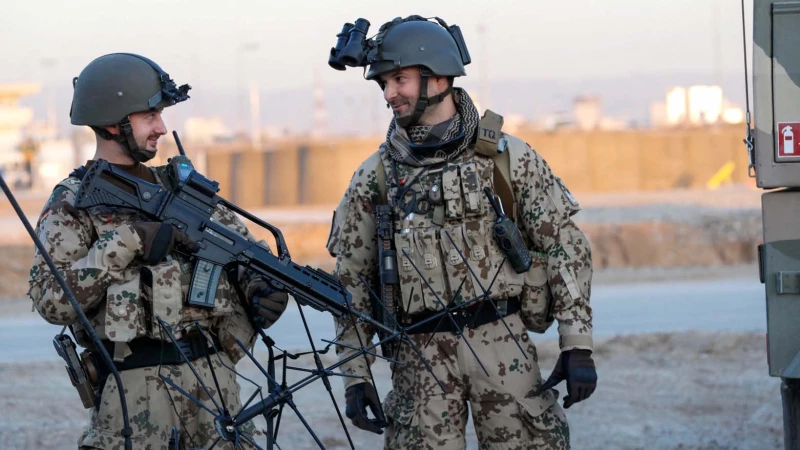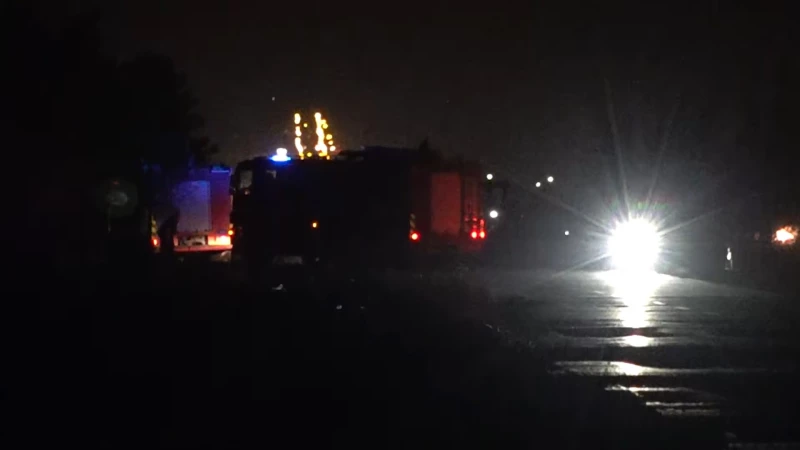ERBIL, Kurdistan Region of Iraq - Kurdistan Region Prime Minister Masrour Barzani confirmed on Saturday that they know who is behind the recent drone attacks targeting the Region's oil fields, adding that the Kurdistan Regional Government (KRG) is sharing intelligence with the US on the matter.
In an interview with the Saudi Arabia-based Asharq media outlet, the premier said that "the [Kurdistan] Region knows who is behind the attacks on its oil facilities, which took place earlier this month using drones,” noting that “we are awaiting the results of the investigation. The attacks coincided with the Regional Government signing energy sector deals with American companies.”
The Kurdistan Region came under multiple assaults on its energy infrastructure sites in recent weeks, coinciding with the announcement of a ceasefire between Iran and Israel after a 12-day military conflict.
Barzani's Deputy Chief of Staff Aziz Ahmad said in an X post earlier in July that the drones "flew" from Kirkuk's Dibis.
"The United States is an ally, and we are sharing intelligence with them regarding the attacks on our oil facilities, as some of the targeted fields are operated by American companies," the premier added.
Civil servant salaries used as bargaining chip
Regarding the issue of the disbursement of the Kurdistan Region's civil servant salaries, Prime Minister Barzani criticized “the Iraqi government’s use of salary disbursement for Kurdistan’s employees as political leverage in the ongoing dispute,” describing it as “a constitutional violation.”
“It is very unfortunate that the people’s salaries have become a political bargaining chip or a point of contention between Baghdad and Erbil. According to the law and the constitution, people have the right to receive their salaries without delay and without any complications,” said Barzani.
The Iraqi government and the KRG had been at loggerheads over the management of the Kurdistan Region's oil fields and the disbursement of civil servant salaries for years. The latest episode occurred in May after Iraq's Finance Minister Taif Sami notified the KRG that they would not be funding the Region's civil servant salaries, arguing that the region had already exceeded its annual budget share in May.
An agreement was eventually reached last week between the two governments, whereby the Kurdistan Region agreed to export 230,000 barrels of oil through the federal government's State Organization for Marketing of Oil (SOMO), in addition to paying 120 billion Iraqi dinars in non-oil revenues to Baghdad as its share of the federal treasury, in exchange for salaries.
“Using people’s salaries as political pressure is unacceptable. We witnessed a three-month delay in salary payments, and only recently were salaries for the month of May disbursed," the prime minister noted.
He added that “the Federal Ministry of Finance is interfering in the details of Kurdistan’s salary and budget issues, which constitutes a violation of the constitution and the rights of Kurdistan,” emphasizing that “the most constitutional solution is to agree on a dedicated Kurdistan budget in the upcoming federal budget law.”
Disputed terriroties
“There is no political will in Baghdad to implement Article 140 regarding Kirkuk," said the premier.
The Kurdistan Region and Iraq have been engaged in a contentious dispute over territories falling on the border between the two governments’ jurisdictions. Article 140 of the Iraqi constitution prohibits changing the boundaries of the areas until a final settlement is reached between the two sides.
The Iraqi government in 2017 mobilized against the Kurdistan Region’s forces in the disputed territories, taking control of the area, including Kurdish-majority Kirkuk.
Barzani said that “the biggest obstacle to a healthy relationship with Baghdad is the lack of political will" and expressed his hopes that the federal government will view the successes of the Kurdistan Region "as successes for all of Iraq."
Regional developments
The Kurdish leader welcomed the peace initiative and talks between Turkey and the Kurdistan Workers’ Party (PKK).
The PKK laid down their arms in a ceremony in Sulaimani earlier in July, heeding an address by the militant group's leader Abdullah Ocalan that called for the group to end the military struggle and turn toward a peaceful political approach to address the Kurdish question in Turkey.
Barzani asserted that “the Syrian government must open the door to the Kurds and meet their demands" amid talks between Kurdish authorities in northeast Syria and the interim Damascus government.
The premier explained that the Kurdistan Region has not been a part of the conflict between Israel and Iran, saying "we do not support any wars. Any deterioration in regional security will have negative consequences for everyone, and we hope a new phase of stability begins in the region.”
The Kurdistan Region "respects its relations with its neighbors, especially Iran, and we will never be a source of threat to any neighboring country," Barzani reassured.



 Facebook
Facebook
 LinkedIn
LinkedIn
 Telegram
Telegram
 X
X


